
Find Help
More Items From Ergsy search
-

Can exercise trigger asthma symptoms?
Relevance: 100%
-

What are the common symptoms of asthma?
Relevance: 79%
-

Can stress cause asthma symptoms?
Relevance: 75%
-

Can asthma be cured?
Relevance: 65%
-

How is asthma treated?
Relevance: 64%
-

What triggers asthma attacks?
Relevance: 64%
-
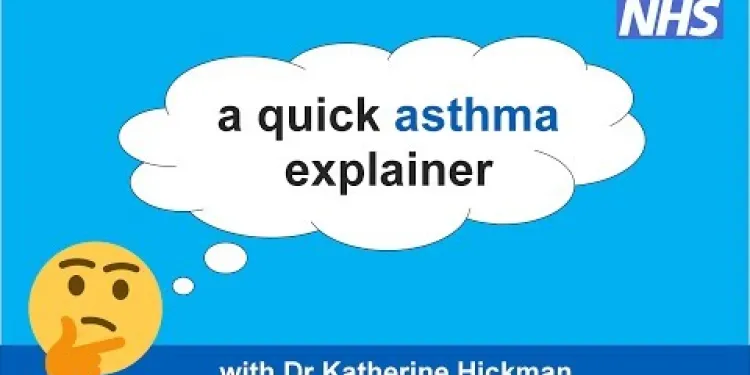
An Asthma Explainer with Dr Katherine Hickman
Relevance: 63%
-

What is Asthma?
Relevance: 63%
-
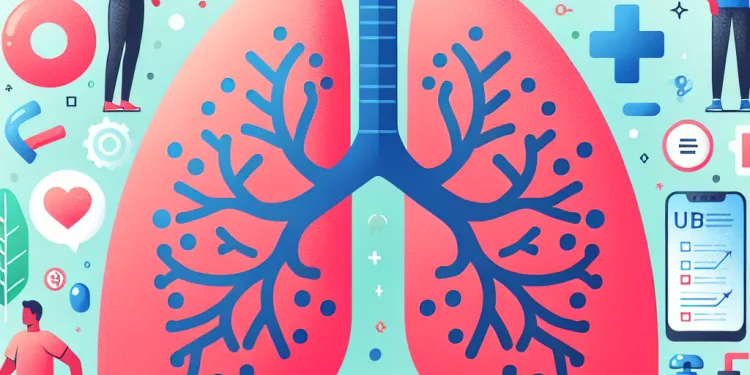
Are there different types of asthma?
Relevance: 63%
-

Are inhalers the only treatment for asthma?
Relevance: 63%
-

Is asthma a serious condition?
Relevance: 62%
-

What causes asthma?
Relevance: 61%
-

How is asthma diagnosed?
Relevance: 60%
-

Can children outgrow asthma?
Relevance: 58%
-
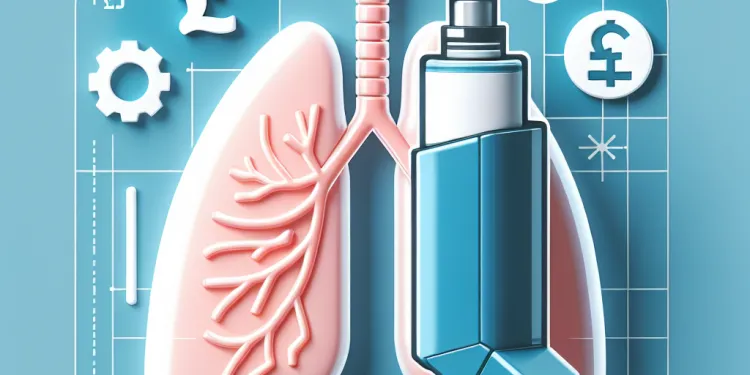
Can asthma be fatal?
Relevance: 57%
-

How can asthma attacks be prevented?
Relevance: 57%
-

What is an asthma action plan?
Relevance: 56%
-

Can diet affect asthma?
Relevance: 56%
-

Is there a link between hay fever and asthma?
Relevance: 54%
-
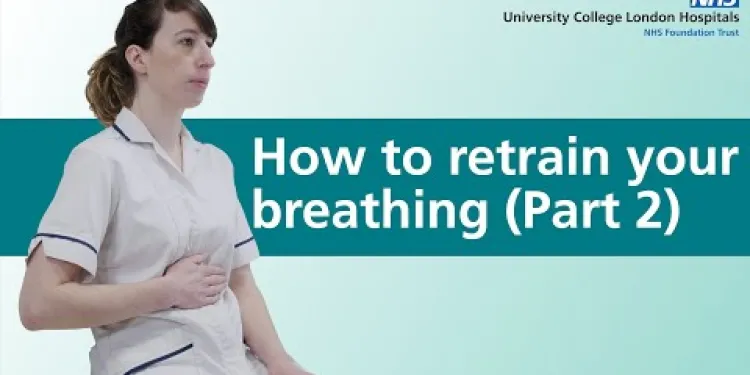
How to retrain your breathing | Part 2 | Asthma, long covid or breathlessness
Relevance: 54%
-

Can exercise worsen whiplash symptoms?
Relevance: 53%
-

Is asthma more common in certain age groups?
Relevance: 52%
-

How does air pollution affect asthma?
Relevance: 50%
-

How often should someone with asthma see a doctor?
Relevance: 50%
-

Can dust mites cause asthma and eczema?
Relevance: 49%
-

What are some common pollutants that affect asthma sufferers in urban areas?
Relevance: 47%
-

Rise in Childhood Asthma Linked to Air Pollution in Urban Areas
Relevance: 46%
-

Are there mobile apps to track air quality and its impact on asthma?
Relevance: 46%
-
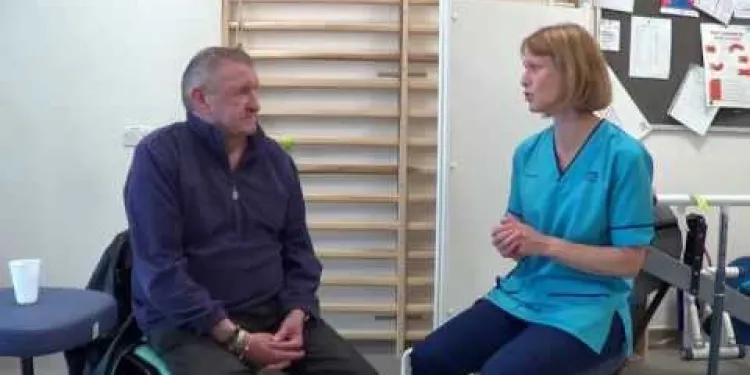
Clearing Your Chest with Breathing Exercises
Relevance: 45%
-

Where can I find information on air pollution and its effect on Asthma for my local area?
Relevance: 45%
-

Are there any exercises involved in air physiotherapy?
Relevance: 44%
-

UK Study Links Poor Air Quality to Increased Asthma Cases in Urban Areas
Relevance: 42%
-
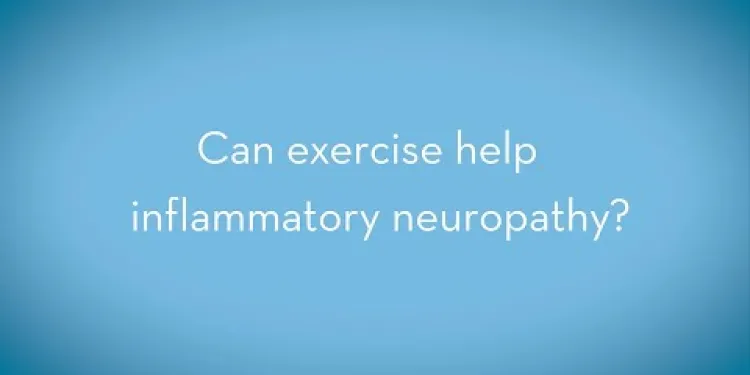
Exercise in patients with a neuropathy
Relevance: 39%
-

Where can I find research studies on air pollution and asthma in my area?
Relevance: 39%
-

Is it safe to exercise with a cold?
Relevance: 38%
-

Can exercise help with symptoms of bowel cancer treatment?
Relevance: 38%
-
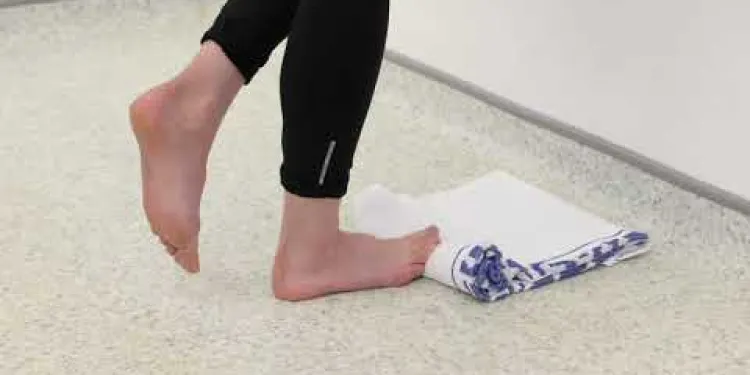
Plantar Fascia Loading Exercise (High Load Exercise)
Relevance: 38%
-

Neck Exercises
Relevance: 36%
-

Neck Exercises
Relevance: 36%
-

How does exercise impact menopause masking?
Relevance: 36%
Introduction
Exercise is an essential part of a healthy lifestyle, offering numerous benefits for both physical and mental health. However, for some individuals, physical exertion can trigger or exacerbate asthma symptoms, a condition known as exercise-induced bronchoconstriction (EIB). Understanding the relationship between exercise and asthma is crucial for effective management, particularly for individuals in the UK, where asthma is a common condition.
What is Exercise-Induced Bronchoconstriction?
Exercise-induced bronchoconstriction, commonly referred to as exercise-induced asthma, occurs when the airways constrict during or after physical activity, leading to breathing difficulties. Although not everyone with asthma experiences EIB, it is estimated that up to 90% of asthma sufferers can be affected by it to some degree. Importantly, even those without chronic asthma can experience EIB under certain conditions.
Causes and Symptoms
When you exercise, you tend to breathe more through your mouth than through your nose, allowing cold, dry air to reach the lungs more quickly. This change can trigger the airways to narrow in susceptible individuals. Common symptoms include coughing, wheezing, a tight feeling in the chest, and shortness of breath during or after exercise. These symptoms typically begin a few minutes into exercise and may persist for 10 to 15 minutes post-exercise.
Diagnosis and Risk Factors
Diagnosis usually involves a detailed medical history and lung function tests, which may include exercise challenges or spirometry to assess airflow obstruction before and after exercise. Risk factors for EIB include having a known diagnosis of asthma, allergies, exposure to irritants like pollution or smoke, and participation in sports that involve continuous running or cold environments such as football or ice hockey.
Management Strategies
Although exercise can trigger asthma symptoms, individuals with EIB can still enjoy regular physical activity by following appropriate management strategies. The use of short-acting bronchodilators such as salbutamol (commonly known in the UK by the brand name Ventolin) before exercise is effective for many. Long-term control medications might also be necessary if EIB is frequent. Warming up before exercise and opting for activities that allow for breaks can also minimize symptoms.
When to Seek Medical Advice
If exercise frequently triggers asthma symptoms, it is crucial to consult a healthcare professional for a tailored asthma management plan. Regular follow-up and monitoring can help adjust treatment as needed and ensure safe participation in physical activities.
Conclusion
While exercise can indeed trigger asthma symptoms for some individuals, it should not deter one from leading an active lifestyle. With proper management and planning, people with asthma or EIB in the UK can enjoy the benefits of exercise while keeping symptoms under control. Understanding personal triggers, adhering to treatment plans, and consulting healthcare providers is key to balancing exercise and asthma management effectively.
Introduction
Exercise is very good for you. It helps your body and mind stay healthy. But some people have trouble breathing when they exercise. This is called exercise-induced bronchoconstriction (EIB). It is important to know how exercise can make asthma worse, especially in the UK where many people have asthma.
What is Exercise-Induced Bronchoconstriction?
EIB, or exercise-induced asthma, happens when your airways get tight during or after exercise. This makes it hard to breathe. Almost 90% of people with asthma can have this problem. Even people without regular asthma can get EIB sometimes.
Causes and Symptoms
When you exercise, you often breathe through your mouth. This can bring cold, dry air into your lungs, which can make the airways narrow in some people. Signs of EIB are coughing, wheezing, feeling tight in the chest, and being short of breath. These usually start a few minutes into exercise and may last for 10 to 15 minutes after stopping.
Diagnosis and Risk Factors
Doctors use questions and lung tests to find out if you have EIB. They might ask you to exercise and then check how well you can breathe. People more likely to get EIB are those with asthma, allergies, or if they breathe in smoke or pollution. Sports with a lot of running or in cold places like football or ice hockey also increase the risk.
Management Strategies
People with EIB can still exercise by managing the symptoms. Using inhalers like salbutamol (Ventolin) before exercise helps many people. Some might need medication all the time if EIB happens a lot. Warming up before exercise and choosing activities with breaks can help too.
When to Seek Medical Advice
If you often have asthma symptoms when you exercise, see a doctor. They can help make a plan just for you. Seeing your doctor regularly helps keep your symptoms under control.
Conclusion
Exercise may cause asthma symptoms for some people, but it should not stop you from being active. With the right plan, people with asthma in the UK can exercise safely. Know what makes your symptoms worse, follow your plan, and talk to your doctor to stay healthy and active.
Frequently Asked Questions
Can exercise trigger asthma symptoms?
Yes, exercise can trigger asthma symptoms in some individuals, a condition known as exercise-induced bronchoconstriction.
What are common symptoms of exercise-induced asthma?
Common symptoms include coughing, wheezing, shortness of breath, chest tightness, and fatigue during or after exercise.
Who is at risk for exercise-induced asthma?
Individuals with a history of asthma or allergies are at higher risk, but it can occur in people without underlying asthma as well.
How can you prevent asthma symptoms when exercising?
Preventive measures include using prescribed inhalers before exercising, warming up properly, and avoiding triggers such as cold air or pollen.
What types of exercise can trigger asthma symptoms?
Activities that require continuous exertion, such as running or cycling, are more likely to trigger symptoms, but any exercise can potentially do so.
Is it safe to exercise with asthma?
Yes, with proper management and precautions, most individuals with asthma can exercise safely.
Can controlled asthma improve with regular exercise?
Yes, regular exercise can improve overall lung function and fitness, which may benefit individuals with controlled asthma.
Should I talk to a doctor before exercising if I have asthma?
Yes, it's important to discuss an exercise plan with your doctor, especially to adjust your asthma management plan if needed.
Can swimming be a better exercise option for asthma sufferers?
Swimming is often recommended because the warm, humid environment is less likely to trigger asthma symptoms.
What medications are used to manage exercise-induced asthma?
Short-acting beta-agonists taken before exercise can help prevent symptoms, and inhaled corticosteroids may be prescribed for long-term management.
Can stress or anxiety from exercise trigger asthma symptoms?
Yes, both physical exertion and emotional stress can contribute to asthma symptoms during exercise.
What role does breathing technique play in managing asthma during exercise?
Proper breathing techniques can help reduce symptoms by ensuring efficient use of the airways and reducing hyperventilation.
Can weather affect asthma symptoms during exercise?
Yes, cold, dry air can exacerbate symptoms, as can high pollen counts and pollution.
Are there any sports less likely to trigger asthma symptoms?
Sports with short bursts of activity, such as baseball, short-distance sprinting, and weightlifting, might be less likely to trigger symptoms.
What lifestyle changes can help reduce exercise-induced asthma symptoms?
Avoiding known allergens, controlling existing asthma, and maintaining overall fitness can help reduce symptoms.
How can I tell if my symptoms are due to exercise-induced asthma or another condition?
Consult with a healthcare provider for an accurate diagnosis; they may recommend testing during exercise to confirm.
Can dehydration play a role in exercise-induced asthma?
Staying hydrated can help, as dehydration might exacerbate breathing difficulties during exercise.
Does diet affect asthma symptoms during exercise?
While no specific diet cures asthma, a balanced diet may help reduce inflammation and improve lung health overall.
Are children more susceptible to exercise-induced asthma than adults?
Exercise-induced asthma is common in children, but with proper management, they can still be active and enjoy sports.
What is the difference between asthma and exercise-induced bronchoconstriction?
Exercise-induced bronchoconstriction is a narrowing of the airways that occurs specifically in response to physical activity, whereas asthma is a chronic inflammatory condition that may include this and other triggers.
Can exercise cause asthma symptoms?
Yes, some people can have trouble breathing when they exercise. This is called exercise-induced asthma.
What are common signs of asthma from exercise?
Some people get asthma when they exercise. Here are signs to look for:
- Coughing
- Breathing hard
- Chest feels tight
- Wheezing (a whistling sound when breathing)
Tips to help:
- Use an inhaler if you have one.
- Take a break or stop exercising if needed.
- Talk to a doctor about it.
Remember, it's important to breathe easy when you exercise!
Common signs are coughing, whistling sounds when breathing, feeling out of breath, feeling tight in the chest, and getting tired during or after exercise.
Who can get asthma from exercise?
People who have had asthma or allergies before are more likely to get it. But people who do not have asthma can still get it too.
If you have trouble understanding, try using a ruler to help keep your place while reading. You can also ask someone to read it out loud to you.
How can you stop asthma problems when you exercise?
Exercising is healthy, but it can cause asthma problems for some people. Asthma makes it hard to breathe. Here are some easy steps to help:
- Warm up before exercise. Move slowly to start, like walking.
- Use your inhaler before you begin if your doctor says to.
- Always carry your inhaler with you.
- Exercise indoors when it is very cold or polluted outside.
- Stop if you have trouble breathing and rest.
- Tell a friend about your asthma so they can help you if needed.
Ask an adult, like a parent or teacher, to help you follow these steps.
To stay safe, use your special medicine inhaler before you exercise. Warm up your body first, and stay away from things that can make you feel sick, like cold air or pollen from plants.
What exercises can make asthma worse?
Some exercises can make asthma worse. Here are some ideas:
- Running fast
- Playing sports like soccer or basketball
- Exercising in cold weather
If you have asthma, talk to an adult or doctor. They can help you find the best ways to exercise.
You can use tools like inhalers to help. Take breaks if you need to.
Activities like running or riding a bike can make symptoms happen more easily because they need a lot of energy. But any exercise might start symptoms too.
Is it safe to play sports if you have asthma?
Yes, people with asthma can exercise safely if they are careful and manage it well.
Can Exercise Help Improve Asthma?
People with asthma might ask: "Can I feel better with exercise?"
Exercise can be good. It can make your lungs and heart stronger.
Talk to a doctor before you start. They can give tips and make sure it's safe.
Be careful if you feel breathless. Stop and rest if you need to.
Tools that might help:
- Use an inhaler as the doctor says.
- Try exercises like walking or swimming.
Yes, doing exercise can help your lungs work better and make you fitter. This might be good for people who have asthma that is under control.
Should I ask a doctor before exercising if I have asthma?
If you have asthma, it's a good idea to talk to a doctor before you start exercising. A doctor can give you advice to keep you safe and healthy.
Here are some helpful tips:
- Ask the doctor how to breathe better while you exercise.
- Find out if you need to use an inhaler before you start.
- Learn which exercises are good for you.
Remember, a doctor can help you make a plan that works best for you.
Yes, talking to your doctor about your exercise plan is important. Your doctor can help if you need to change how you manage your asthma.
Is swimming a good exercise for people with asthma?
Swimming is a good exercise for people with asthma because the warm, wet air is gentle on your lungs.
What medicines can help with exercise-induced asthma?
Taking certain medicines before you exercise can help you breathe better. These medicines are called short-acting beta-agonists. Doctors may also give you special inhalers, called inhaled corticosteroids, to help you breathe better every day.
Can exercise make asthma worse?
Yes, exercise and getting upset can make asthma worse.
How does breathing help with asthma when you exercise?
When you have asthma, it can be hard to breathe, especially when you exercise.
Breathing correctly can help you feel better. Try to take slow, deep breaths.
Ask a doctor or nurse to show you how to breathe well. You can practice with them.
Using an inhaler before exercising may also help. Ask your doctor if you need one.
Good breathing can help you feel better. It uses your lungs in the right way and stops too much breathing.
Can the weather change asthma symptoms when you exercise?
Yes. Cold and dry air can make symptoms worse. High pollen and pollution can also make symptoms worse.
Which sports are safer for people with asthma?
Some sports are better for people with asthma. These sports don't make you run for a long time. Here are some safe sports:
- Swimming: The warm, moist air can help breathing.
- Walking: You can go slow and take breaks.
- Yoga: It helps with calm breathing.
Always talk to a doctor before starting a new sport. Use an asthma inhaler if your doctor says to. Try to play inside when the air outside is bad or very cold.
Some sports are good with short activity. These sports are baseball, short runs, and weightlifting. They are less likely to cause problems.
How can I feel better if exercise makes my asthma worse?
You can make some changes in your life to help you feel better when you play or exercise:
- Warm-up slowly before you start exercising.
- Try to breathe through your nose, not your mouth.
- Exercise inside when it's cold or windy outside.
- Talk to your doctor about using an inhaler before exercise.
- Choose activities like swimming that might be easier on your lungs.
- Make sure to rest if you start to feel short of breath.
These tips can help you enjoy exercise without feeling sick. Ask a grown-up for help if needed.
Stay away from things that make your allergies worse. Take care of your asthma if you have it. Keep your body healthy and strong. These things can help you feel better.
How do I know if my breathing problems are because of exercise or something else?
If you have trouble breathing when you exercise, it might be exercise-induced asthma. But it could be something else too. Here are some ways to find out:
- Check when it happens: Does it happen only when you exercise or at other times too?
- Talk to a doctor: A doctor can help you know for sure.
- Use a breathing test: A special test can show how well you breathe.
- Pay attention to other symptoms: Notice if you have other signs like coughing or wheezing.
Remember, a doctor can help you with these symptoms. They can tell you what to do next.
For more help, you can try using simple videos or talking to someone you trust.
Talk to a doctor to find out what's wrong. The doctor might do a test while you exercise to be sure.
Can not drinking enough water cause asthma during exercise?
Drinking enough water can help. If you don't drink enough water, it can make it harder to breathe when you exercise.
Can what you eat change asthma symptoms when you exercise?
Do certain foods make asthma better or worse when you play or exercise?
Here are some tips to help:
- Eat healthy foods like fruits and veggies.
- Drink plenty of water.
- Avoid foods that might cause allergies.
Ask an adult or doctor if you have questions.
Eating healthy foods can help with asthma. It doesn't fix asthma, but it can make your lungs feel better.
Do children get asthma from exercise more than adults?
When kids play or run, do they get asthma more often than grown-ups?
If reading's hard, ask someone to read with you. Using pictures and videos might help too!
Sometimes, kids can have trouble breathing when they play or do sports. This is called exercise asthma. But, kids can still play and have fun by learning how to manage it.
How is asthma different from breathing problems during exercise?
Asthma: Asthma is when your lungs sometimes have trouble letting you breathe. There are times when things like dust or pollen can make your lungs feel tight. This can happen any time, not just when you play or exercise.
Breathing problems from exercise: This happens when you do things like running or playing sports. Your lungs might feel tight and make you cough or wheeze, but only when you exercise.
Some tools that can help you understand better are:
- Talking to a doctor or nurse who can explain it simply.
- Using pictures or videos that show how lungs work.
Exercise-induced bronchoconstriction means your airways (the tubes you breathe through) get tighter when you exercise or play. Asthma is when your airways can get swollen and tight because of different things, not just exercise.
If you find reading hard, you can use tools like audiobooks or videos to help you understand better. Also, try asking someone to read with you if that helps.
Useful Links
This website offers general information and is not a substitute for professional advice.
Always seek guidance from qualified professionals.
If you have any medical concerns or need urgent help, contact a healthcare professional or emergency services immediately.
Some of this content was generated with AI assistance. We’ve done our best to keep it accurate, helpful, and human-friendly.
- Ergsy carfully checks the information in the videos we provide here.
- Videos shown by Youtube after a video has completed, have NOT been reviewed by ERGSY.
- To view, click the arrow in centre of video.
- Most of the videos you find here will have subtitles and/or closed captions available.
- You may need to turn these on, and choose your preferred language.
- Go to the video you'd like to watch.
- If closed captions (CC) are available, settings will be visible on the bottom right of the video player.
- To turn on Captions, click settings .
- To turn off Captions, click settings again.
More Items From Ergsy search
-

Can exercise trigger asthma symptoms?
Relevance: 100%
-

What are the common symptoms of asthma?
Relevance: 79%
-

Can stress cause asthma symptoms?
Relevance: 75%
-

Can asthma be cured?
Relevance: 65%
-

How is asthma treated?
Relevance: 64%
-

What triggers asthma attacks?
Relevance: 64%
-

An Asthma Explainer with Dr Katherine Hickman
Relevance: 63%
-

What is Asthma?
Relevance: 63%
-

Are there different types of asthma?
Relevance: 63%
-

Are inhalers the only treatment for asthma?
Relevance: 63%
-

Is asthma a serious condition?
Relevance: 62%
-

What causes asthma?
Relevance: 61%
-

How is asthma diagnosed?
Relevance: 60%
-

Can children outgrow asthma?
Relevance: 58%
-

Can asthma be fatal?
Relevance: 57%
-

How can asthma attacks be prevented?
Relevance: 57%
-

What is an asthma action plan?
Relevance: 56%
-

Can diet affect asthma?
Relevance: 56%
-

Is there a link between hay fever and asthma?
Relevance: 54%
-

How to retrain your breathing | Part 2 | Asthma, long covid or breathlessness
Relevance: 54%
-

Can exercise worsen whiplash symptoms?
Relevance: 53%
-

Is asthma more common in certain age groups?
Relevance: 52%
-

How does air pollution affect asthma?
Relevance: 50%
-

How often should someone with asthma see a doctor?
Relevance: 50%
-

Can dust mites cause asthma and eczema?
Relevance: 49%
-

What are some common pollutants that affect asthma sufferers in urban areas?
Relevance: 47%
-

Rise in Childhood Asthma Linked to Air Pollution in Urban Areas
Relevance: 46%
-

Are there mobile apps to track air quality and its impact on asthma?
Relevance: 46%
-

Clearing Your Chest with Breathing Exercises
Relevance: 45%
-

Where can I find information on air pollution and its effect on Asthma for my local area?
Relevance: 45%
-

Are there any exercises involved in air physiotherapy?
Relevance: 44%
-

UK Study Links Poor Air Quality to Increased Asthma Cases in Urban Areas
Relevance: 42%
-

Exercise in patients with a neuropathy
Relevance: 39%
-

Where can I find research studies on air pollution and asthma in my area?
Relevance: 39%
-

Is it safe to exercise with a cold?
Relevance: 38%
-

Can exercise help with symptoms of bowel cancer treatment?
Relevance: 38%
-

Plantar Fascia Loading Exercise (High Load Exercise)
Relevance: 38%
-

Neck Exercises
Relevance: 36%
-

Neck Exercises
Relevance: 36%
-

How does exercise impact menopause masking?
Relevance: 36%


